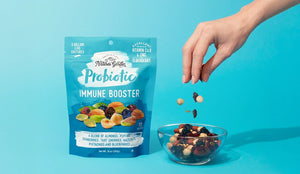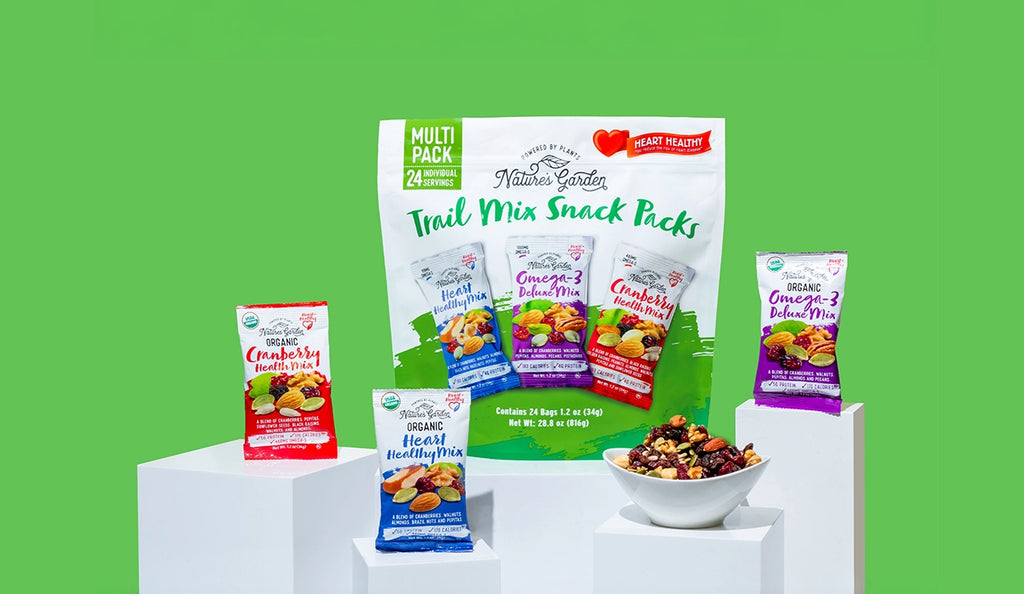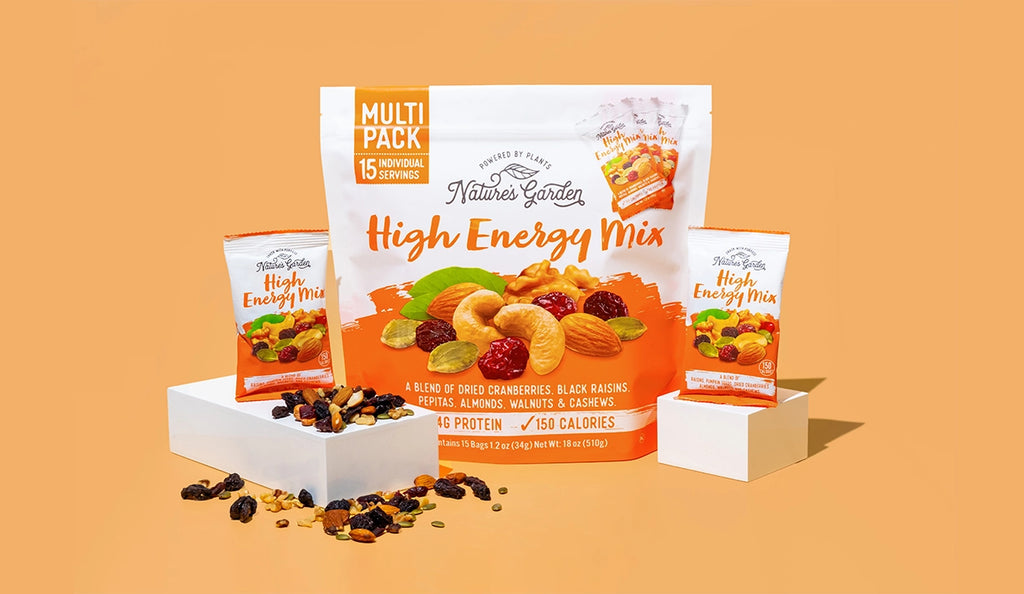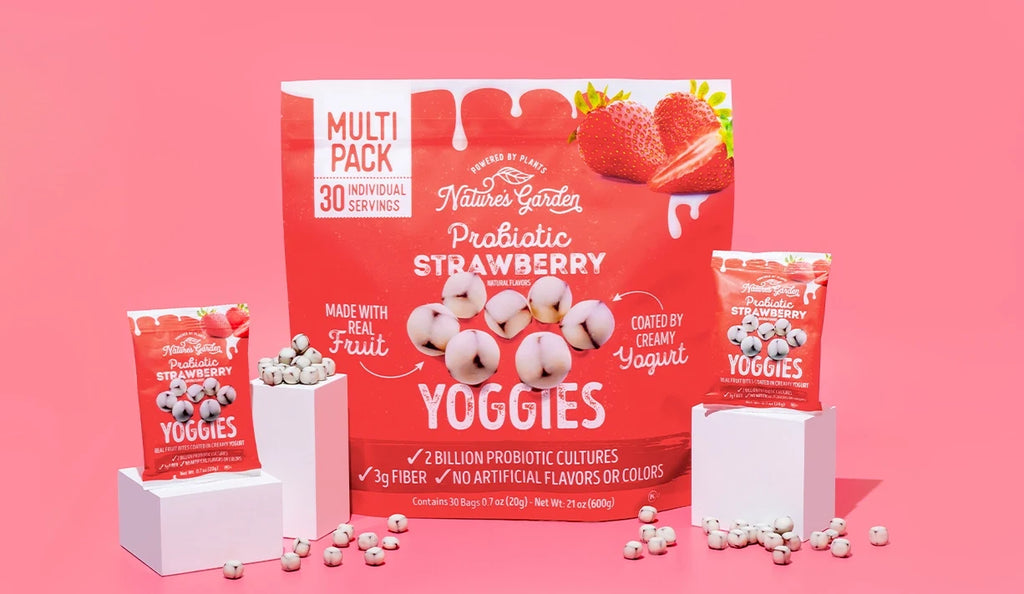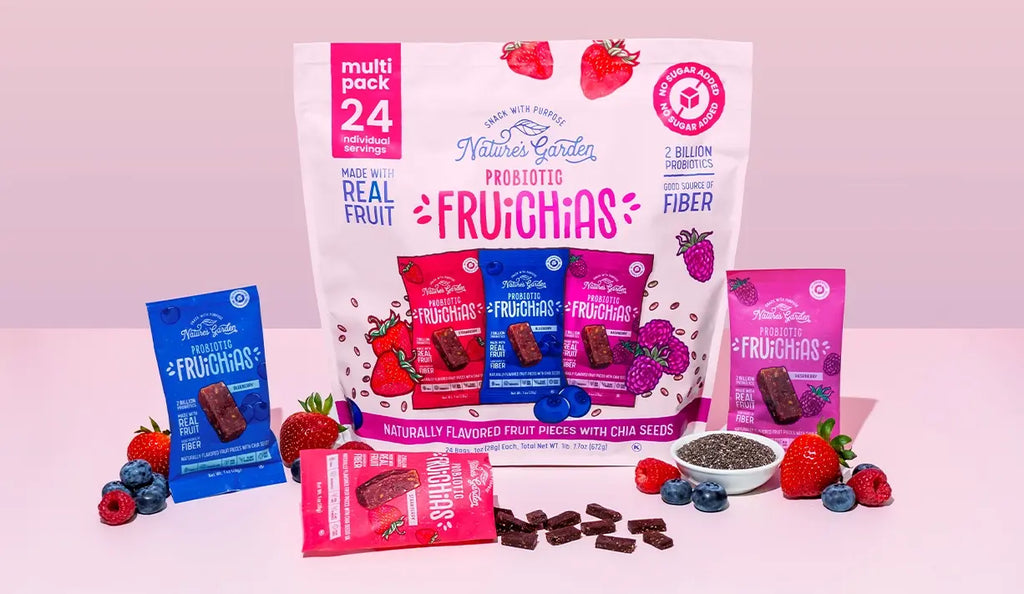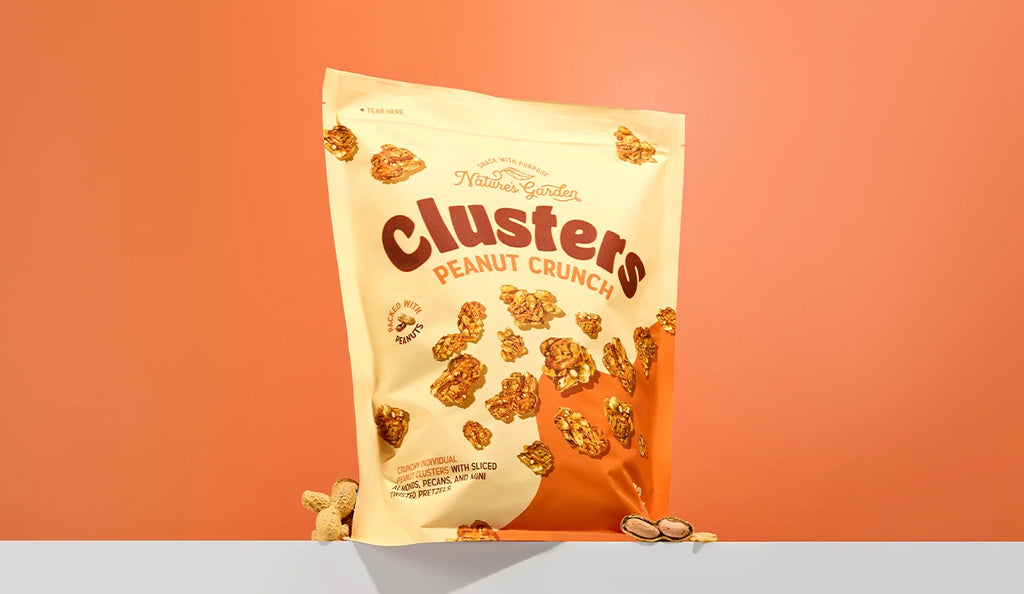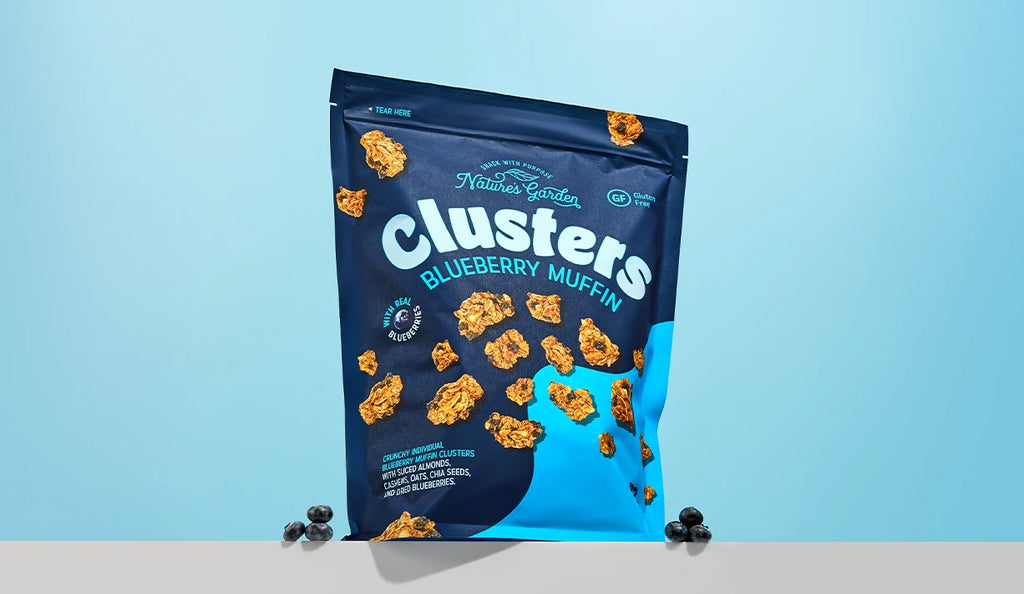While trying to multi-task between work and home life, it’s important to make sure your children are happy and healthy. Maintaining a strong immune system means finding the right safeguards that are beneficial for them. While your children are at school, sports, and other activities there are many ways they can be exposed to someone who is sick. The better their immune system, the better their chance is to remain healthy, especially during flu season. At Nature’s Garden, we offer many snacks that can help boost your child’s vitamin and mineral intake to keep them feeling healthy all year round! In this article, we are going to discuss some of the key vitamins to give your child and their benefits as well as some other tips to boost your child’s immune system.
What Vitamins and Minerals are Important for Immune Health?
There are many immune health vitamins that you should know about to keep your child healthy. Other than providing energy, vitamin C and Zinc are two of the best vitamins and minerals for keeping the immune system healthy.
Commonly people are asking, what is vitamin C good for? What is zinc good for? Will zinc or vitamin C help with a cold?
Vitamin C Benefits
Vitamin C is an antioxidant that can help neutralize harmful substances in the body that damage cells and cause infections. Vitamin C is also involved in collagen production which impacts the structure and function of bones, very important in growing children. Vitamin C is also great for brain development and its strong immune-boosting functions are why many people turn to a glass of orange juice, and citrus fruits when feeling sick.
Zinc Benefits
Zinc is an important mineral that boosts immune function, helps with wound healing, and the senses of taste and smell. It is paramount that children get enough zinc as it is crucial for proper growth and development. Although zinc deficiency is rare, not giving children enough zinc may make them less resistant to infections and diseases.
Wondering what foods can help boost your child’s immune system? Here is our top 10 list.
Top 10 Immune-Boosting Foods
- Citrus fruits
- Leafy greens
- Ginger
- Yogurt
- Nuts and seeds
- Fish and poultry
- Beans and legumes
- Whole grains
- Garlic
- Olive oil
What is the recommended daily dose of vitamin C and Zinc for children?
|
Age Range |
Vitamin C |
Zinc |
|
1-3 years |
15 mg |
3 mg |
|
4-8 years |
25 mg |
5 mg |
|
9-13 years |
45 mg |
8 mg |
|
14-18 years (boys) |
75 mg |
11 mg |
|
14-18 years (girls) |
65 mg |
9 mg |
Does my Child Have a Vitamin Deficiency?
It is important to keep an eye on your child’s nutrition every so often. This is because, if they aren’t consuming enough whole foods, there might be concerns for vitamin and mineral deficiencies.
Specifically, clinical deficiencies in immune-boosting vitamins and minerals like vitamin C and zinc can weaken your child’s immunity and increase susceptibility to infections.
You can take your child in for a physical exam and have labs done if you are concerned, however here is a list of common early signs of deficiencies:
- Dry skin
- Fatigue
- Hair loss
- Bleeding gums
- Loss of taste
- Decrease appetite
- GI complications
If you suspect your child may be deficient from diet alone, it may be time to think about adding a supplement.
Benefits of Vitamin and Mineral Supplements
If you think your child may have a vitamin C or zinc deficiency, giving them a vitamin C or zinc supplement can have many benefits.
While it is most important to get these nutrients through food, speaking with a pediatrician or registered dietitian about a supplement may be used if your child has a low appetite or suffers from a chronic illness.
Many supplements sold at the store are generally safe for consumption. You want to ensure the supplement you buy is made specifically for children and that you purchase a high-quality brand without fillers, artificial flavors, sweeteners, or corn syrups.
We aren’t done yet! To finish out this article we want to leave you with some additional tips to boost your child’s immune system!
5 Tips to Boost Your Child’s Immune System
- Make it colorful. Fruits, such as berries, and veggies as well as leafy greens have different vitamins and minerals that help boost the immune system. Try organizing these food groups into a rainbow. Make it more fun for your children to enjoy!
- Keep a happy tummy. Probiotics are some of the helpful bacteria that help keep little tummies healthy by preventing risks of immune and digestive problems. When you lose the “good” bacteria in your body, probiotics can help replace them. Try creating a smoothie with yogurt, fruits, and even veggies that will make them feel like they are having a special treat. One of our snacks, Nature’s Garden Probiotic Immune Snack Packs, combines ginger, cranberries, cherries, and elderberry which provides a blast of vitamin C, vitamin D, and zinc to reduce inflammation, combat stress, and fight disease.
- Snack right. Finding healthy snacks may be an easier method than having your kids take supplements. Foods filled with Vitamin C, E, A, D, Omega-3, and Zinc will help boost their immune system. Almonds, apricots, cashews, hazelnuts, mangos, strawberries, sunflower seeds, and walnuts are some of the many examples of snacks you get. As well as, Nature’s Garden’s Cranberry Health Mix, which is very delicious and has organic ingredients, such as cranberries, walnuts, almonds, and sunflower seeds.
- Sleep more. Less sleep time increases the likelihood of illnesses creeping in. Make sure they get the right amount of sleep necessary. Naps are especially important for the little ones to recharge and grow.
- Get moving: Getting regular physical activity is one of the best things you can do to maintain a healthy immune system. If you are looking for more ways to keep yourself and your children active at home, check out our recent article, Staying More Active At Home, where we provide some great options!
And don’t forget, always check with your designated pediatrician on what foods and supplements are best for your children. In the meantime, be conscious of the ingredients in certain foods and continue the hard work and immune-boosting efforts you are doing. Be well and keep your children healthy!
